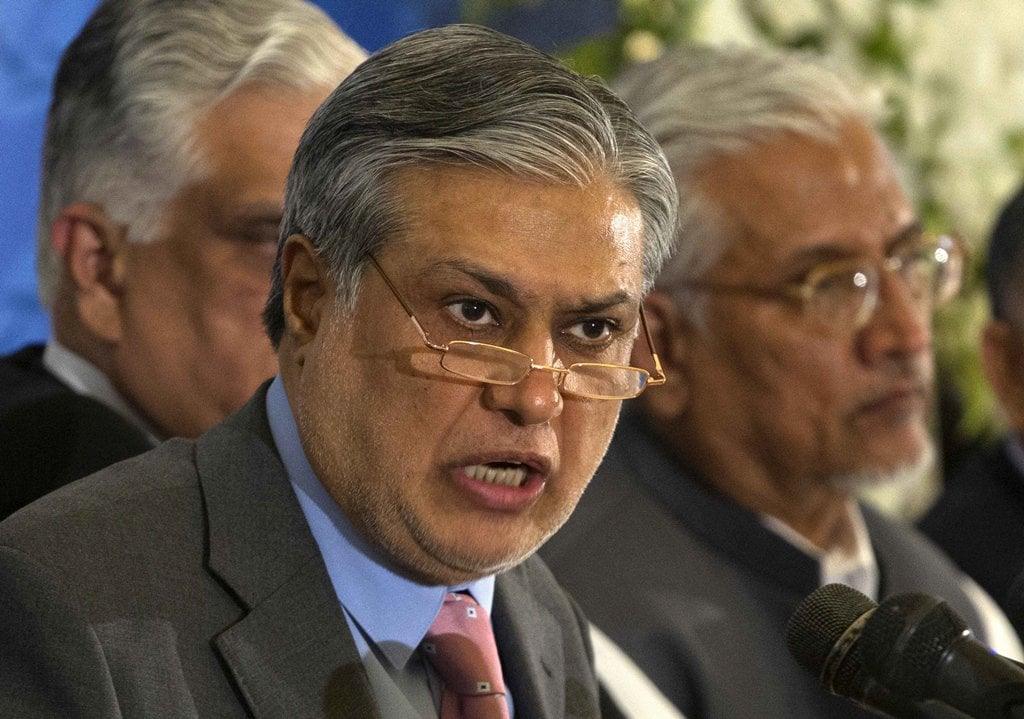ISLAMABAD:
Foreign Minister Ishaq Dar will travel to Bangladesh next month in a groundbreaking development that shows the strengthening of ties between the two countries following the overthrow of the pro-Indian government in August last year.
This will be the first visit by a Pakistani foreign minister since 2012. Dar said at a press conference on Thursday that he would visit Dhaka in February at the invitation of his Bangladeshi counterpart.
Dar was giving an overview of the major foreign policy developments and the government’s achievements and future challenges.
The foreign minister also confirmed that Bangladesh Chief Executive Dr. Muhammad Yunus also accepted Pakistan’s invitation to travel to Islamabad on mutually agreed dates.
Hina Rabbani Khar was the latest foreign minister to travel to Dhaka to invite Prime Minister Sheikh Hasina Wajid to the D-8 summit.
Relations between Pakistan and Bangladesh remained tense during the 15 years of Sheikh Hasina’s rule. The Awami League leader never reciprocated Pakistan’s various attempts to improve ties as she was aligned with India.
However, after his overthrow in August last year following the bloody uprising, the relationship between Pakistan and Bangladesh has seen considerable improvement. There have been a series of exchanges between the two countries at the highest level.
Bangladesh has also lifted restrictions on Pakistani exports, allowing for an increase in bilateral trade. Furthermore, the two countries began direct trade through the sea.
Dar called Bangladesh a “brotherly country” and said Pakistan would provide all possible help to Dhaka.
On the issue of resurgence of terrorism, Dar criticized the policy of the PTI government and the previous establishment.
In particular, he mocked former DG ISI Lieutenant General (retd) Faiz Hameed for his infamous comment over a cup of tea in Kabul, days after the Afghan Taliban retook power.
He said critical decisions taken “over a cup of tea” led to the entry of between 35,000 and 40,000 Tehreek-e-Taliban Pakistan (TTP) members into Pakistan.
He questioned how 40,000 to 45,000 TTP members were allowed to enter Pakistan and who facilitated their return.
“Who opened the borders and freed the TTP members over a cup of tea?” he asked, noting the impact of such policies on the nation’s security.
Dar also asserted that Pakistan’s diplomatic isolation has ended, giving credit to the government’s active engagement at bilateral and multilateral levels.
“No one can say now that Pakistan is isolated,” Dar told reporters in Islamabad, emphasizing the country’s efforts to expand its diplomatic footprint.
Meanwhile, Dar presented an optimistic picture of the coalition government led by Prime Minister Shehbaz Sharif. He insisted that Pakistan was no longer facing international isolation and listed several developments, including the holding of the SCO conference and a series of high-level visits.
Later, responding to a question about a Washington Post article on India’s involvement in the killing of foreign nationals, Foreign Ministry spokesperson Mumtaz Zahra Baloch said Pakistan had already expressed concern over the involvement of India in extraterritorial killings, not only in Pakistan but also in other countries.
He said Pakistan wanted to have good ties with Afghanistan but at the same time, the people and security forces of Pakistan were capable enough to thwart any internal and external threats.
To another question, he clarified that Pakistan’s ports, including Gwadar port, were exclusively for trade and development and the country had no intention of offering military bases to any foreign government.




